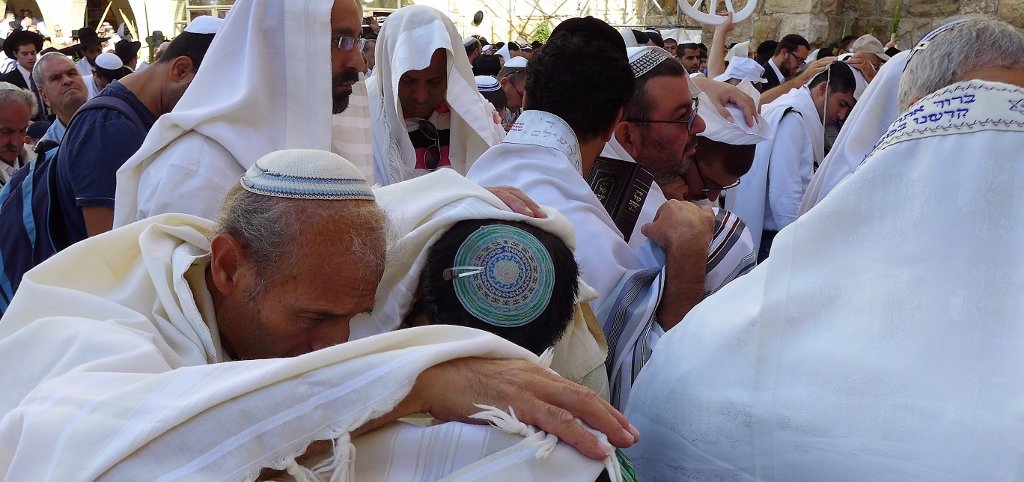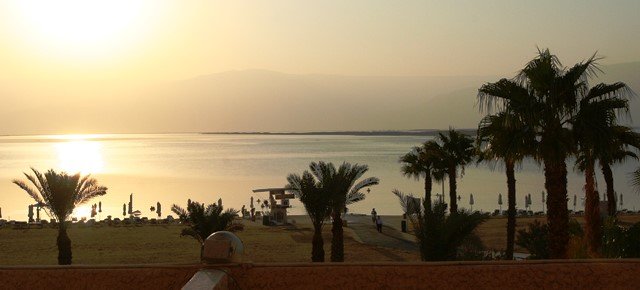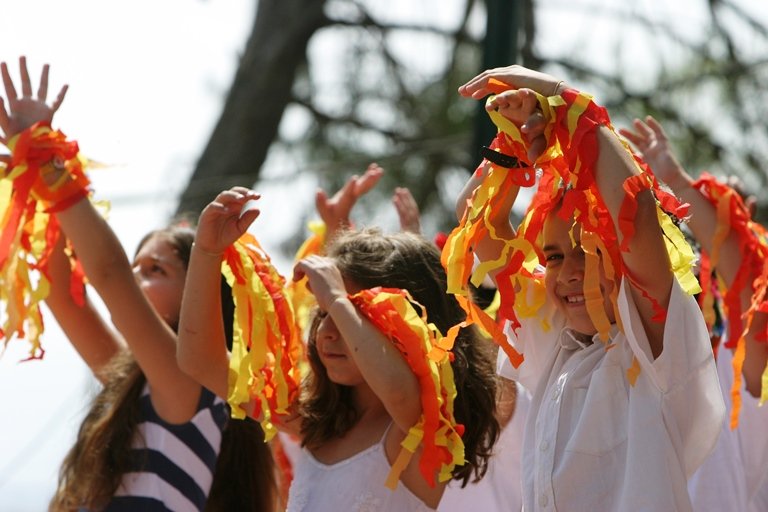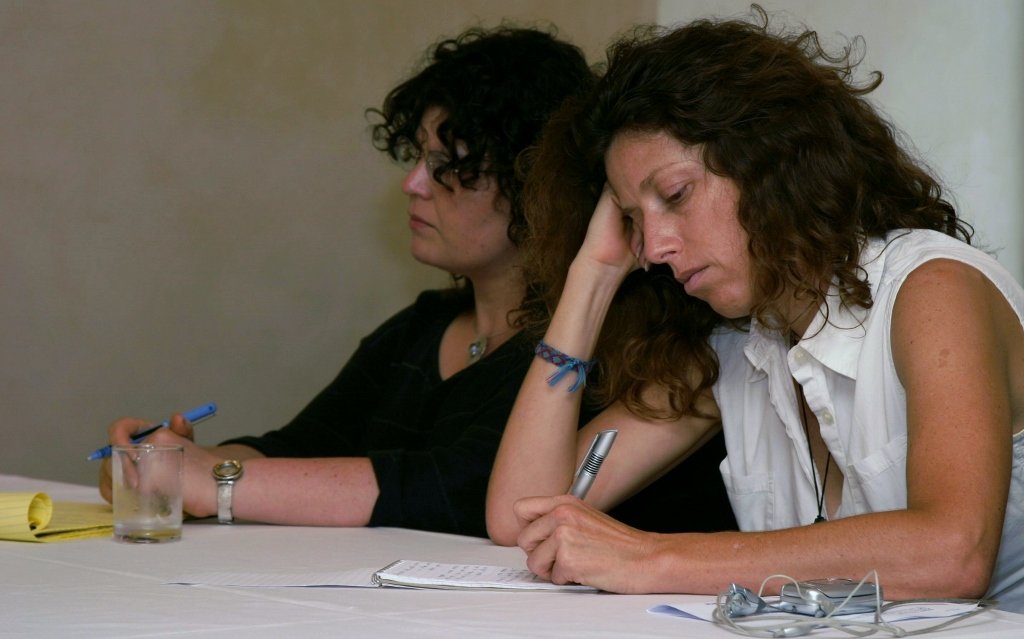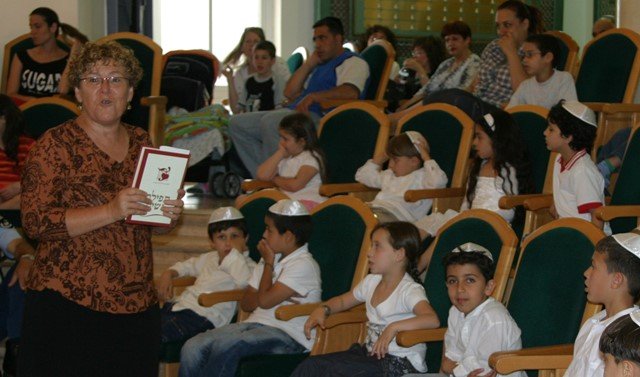Share This Story, Choose Your Platform!
The Torah passage under the heading „Naso“, which may be found in Numbers 4:21‑7:89, contains also the so-called priestly blessing. While the people of Israel were camping in the wilderness the Lord spoke to Moses about the way in which Aaron and his sons, that is the priests, should bless Israel. And he told Moses the exact words which were to be used. Hebrew is a very compact language. Sometimes two words require a whole sentence when translated into German.
„Thus you shall speak to the people of Israel when you bless them,“ is how Martin Luther translates the blessing. He changed the sentence order. Literally the text says, „Thus you shall bless the people of Israel: you shall say to them, ‘the Lord bless you and keep you; the Lord make his face to shine upon you, and be gracious to you; the Lord lift up his countenance upon you, and give you peace.’ So shall they put my name upon the people of Israel, and I will bless them“ (Numbers 6;22-27).
All Bible interpreters agree that this blessing includes material and physical well-being as well as spiritual prosperity, and climaxes in an all-inclusive blessing of peace. This is how the Lord wants to bless the Israelites, and the priests are to be an instrument of this blessing. Although this blessing was spoken over a crowd of people, it is formulated in the second person, and therefore directed at individuals. Every single individual should be blessed.
This blessing is pronounced every day in Israel during morning prayers, and on the Sabbath and national holidays as part of the additional „Mussaf“ prayer. Outside of Israel, the priestly blessing is only spoke on national holidays. At the three pilgrimage festivals many Jews gather at the Wailing Wall, where this blessing is pronounced or even sung by priests who are officially approved by the Jews. Jewish priests are summoned to the Waling Wall by rabbis, in order to bless the Jews from Israel and from the Diaspora. Hundreds of priests are gathered, and with their heads covered by their prayer shawls, and their hands stretched out, they repeat the Aaronic blessing after the precentor (singer), or „Chasan“.
The idea of the mass blessing at the Wailing Wall came from Rabbi Menachem Mendel Gafner. In 1970, during the War of Attrition, the Jerusalem Rabbi sat on a bench at the Wailing Wall and meditated on the situation, and on stories from the Talmud and texts from the Bible. He remembered the renewal of the Passover under King Hesekia: „Then the priests and the Levites arose and blessed the people, and their voice was heard, and their prayer came to his holy habitation in heaven“ (2 Chronicles 30;27). In the ancient book of the Rabbi Yehuda HaChasid, the „Sefer Chasidim“, which is about 700 years old, he read the story of a procession of priests around the Mount of Olives at the time of the „Gaonim“. This procession was supposed to haste the coming of the Messiah.
Friends of Rabbi Gafner and some rabbis got enthusiastic about the idea of the priestly blessing. The Mount of Olives or the Wailing Wall were considered as venues. The Wailing Wall was chosen in the end. The first priestly blessing took place in the Jewish month of Kislev in the year 1970. Even Rabbi Gafner was surprised how many priests and people turned up at the ceremony. In his final will and testament he wrote, „the priestly blessing should, with God’s help, continue until our righteous Savior appears.“
This blessing from the Old Testament is held in high regard among Christians as well. In the 16th century Martin Luther suggested that the Lutheran service be closed by blessing the congregation with these words, a practice which continues to this day. The Aaronic blessing is pronounced in both Catholic and in Anglican churches. Christians shouldn’t, however, forget over whom, according to the will of God, this blessing was originally pronounced. The „kingly priesthood“ continues to direct its blessing first and foremost to the Jewish people, wishing them material and spiritual prosperity, and, above all, peace. The chruch shouldn’t bless themselves with this blessing, but the children of Israel. That very blessing will return upon their own heads, because the Lord promised Abraham „I will bless those who bless you.“ (Genesis 12:3)
Translation by Nicola Vollkommer


